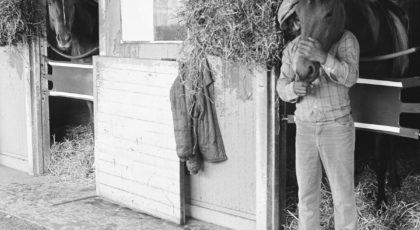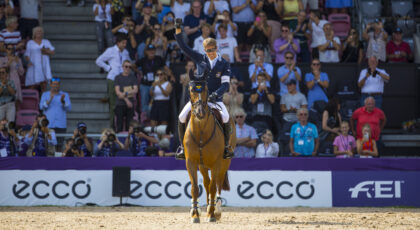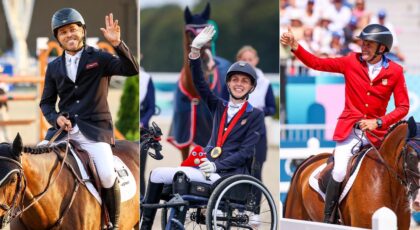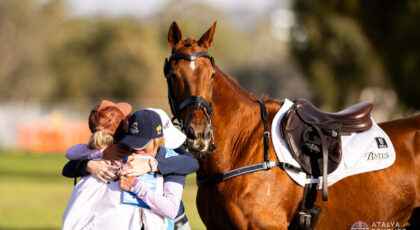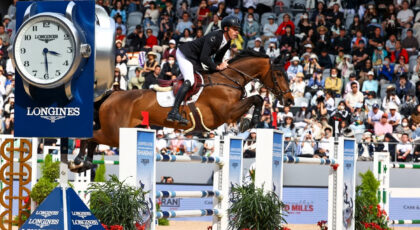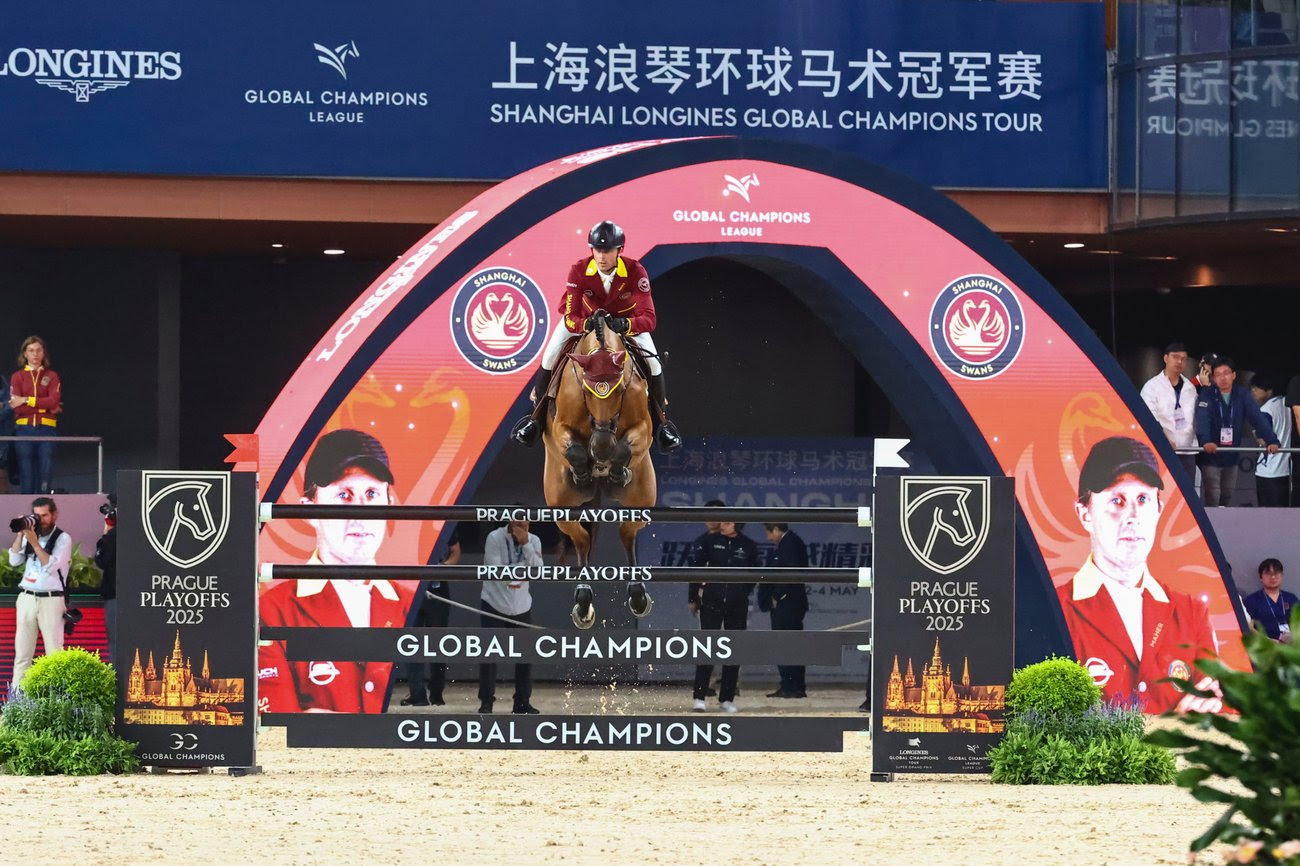When horses are not performing up to their usual standards, regardless of discipline, the signs can be subtle.
Usually, it is the rider who first picks up on a slight feeling and questions whether something is off. A horse may suddenly be lacking impulsion, be uneven in its stride, or tripping more than usual. In the jumper ring, a horse’s discomfort can present itself as rails down. Riders can easily attribute these issues to their own shortcomings, but the veterinarian is able to understand if, and decide when, there may be an underlying issue. Helping equine athletes reach their full potential and maintain optimal health is the goal of sport horse medicine.
Sebastian, a 13-year-old Selle Francais gelding, had garnered accolades in the jumper ring at competitions around the world. While competing at the 2021 Winter Equestrian Festival (WEF) in Wellington, Florida, his performance was waning. He was not jumping the clear rounds he had cranked out consistently through his career, knocking down rails while jumping off his right lead in particular.
Although owner Serena Marron had just purchased Sebastian in the fall of 2020, she knew that something was not right. She was aware of Sebastian’s capabilities and conferred with her veterinarian, Dr. Bryan Dubynsky of Palm Beach Equine Clinic, to get to the root of his performance issue.


“Sebastian had a super clean vetting with no previous injuries, but his right-side fetlocks would often get a little sore,” said Marron. “My trainer and I decided to have Dr. Dubynsky evaluate Sebastian, and he opted for a self-derived biologic treatment in all four fetlocks and hocks. I’ve had horses respond well to this type of treatment in the past, so I knew it was a reliable option.”
Self-derived biologic treatments are a form of regenerative medicine, which encourage the body to self-heal through stimulating naturally occurring biological processes. Regenerative medicine is used to treat or prevent joint disease and soft tissue injuries and works to decrease some of the detrimental biologic processes that can inhibit or slow recovery. By promoting healing and a healthy joint environment, veterinarians are better able to support horses throughout their athletic careers.
“Biologic agents found in the horse’s own blood can be harvested, concentrated, and returned to the affected area of that same horse,” explained Dr. Dubynsky. “This self-derived serum combines naturally occurring growth factors and anti-inflammatory mediators, among other agents, that can improve the structure, strength, and speed of healing. In equine sports medicine, we commonly use regenerative therapies to treat musculoskeletal injuries and as a preventative therapy to proactively preserve joint health.”
Some regenerative therapies, like the biologic treatment used for Sebastian, can be prepared stall-side and administered during one appointment. Autologous (self-derived) serums are natural and steroid-free with no drug-withholding times for horses competing in FEI or recognized competitions.
“As with many horses performing at the top of their respective sports, Sebastian had obvious synovitis in his joints,” noted Dr. Dubynsky. “Opting to treat this inflammation with a self-derived biologic as opposed to a corticosteroid promotes better long-term joint health instead of a quick fix.”

After the injections, Sebastian was given a couple of weeks off from jumping to let the regenerative treatment do its job. Upon returning to full work, the difference in Sebastian was very apparent to Marron.
“I could tell the treatment worked right off the bat,” said Marron. “I could feel a difference in his body by the way he propelled off the ground and how he felt in training the day after a big class. He felt all around more balanced and even on each lead, which was a noticeable improvement.”
Sebastian soon regained his reputation for agile, clear rounds. The pair was able to successfully resume competition plans by jumping in the FEI two- and three-star divisions for the remainder of the WEF circuit. They now plan to continue competing at that level throughout the summer, along with national grand prix classes.
“Sebastian has spent years jumping at the five-star level,” added Marron, “so we do whatever we can that will help him continue feeling his best.”

Horses can reap the benefits of self-derived biologic treatments well before a serious injury occurs that could derail training or require a lengthy recovery. Different forms of regenerative therapy, such as stem cells, platelet rich plasma (PRP), and interleukin-1 receptor antagonist protein (IRAP), are actively being researched and improved upon. This evolving facet of equine medicine is now a common component of the competitive horse’s comprehensive, long-term care.
“Traditional medicine tends to focus on treating the symptoms of health problems while regenerative medicine targets the root causes,” explained Dr. Dubynsky. “Non-steroidal anti-inflammatory drugs and corticosteroids can diminish the body’s healing response over time, and they do not address the underlying condition. In contrast, self-derived biologics stimulate normal, healthy tissue production instead of weaker scar tissue that is prone to re-injury.”
Although Sebastian only underwent the self-derived biologic treatment, regenerative therapies can often be used in conjunction with other medications or alternative therapies. Palm Beach Equine Clinic’s veterinary team carefully assesses each horse to determine which treatments would be the most beneficial for the individual horse.
To speak with a Palm Beach Equine Clinic veterinarian about your horse’s performance or regenerative therapy options, call 561-793-1599 or visit www.equineclinic.com.


 June 9, 2021
June 9, 2021 















